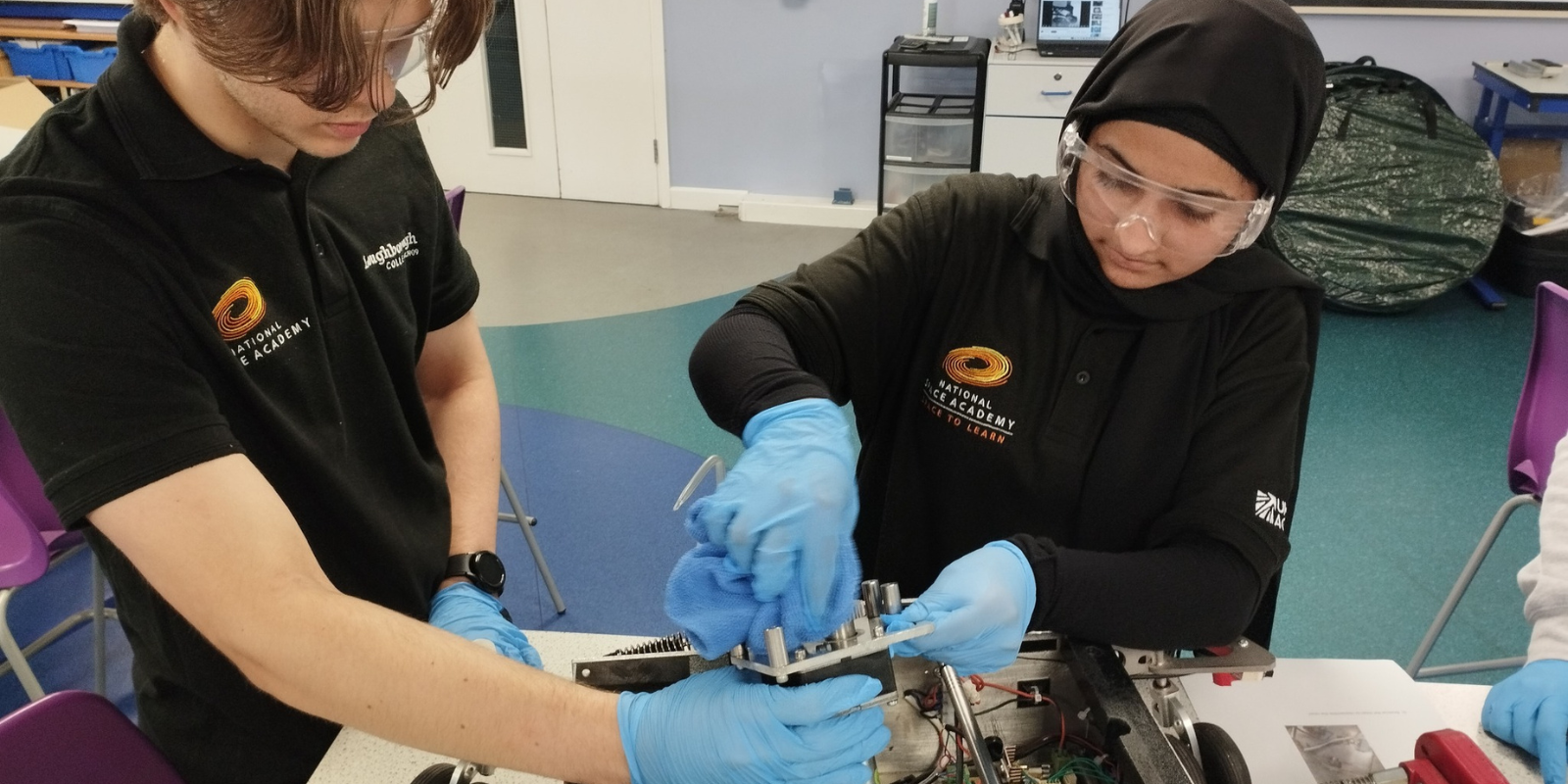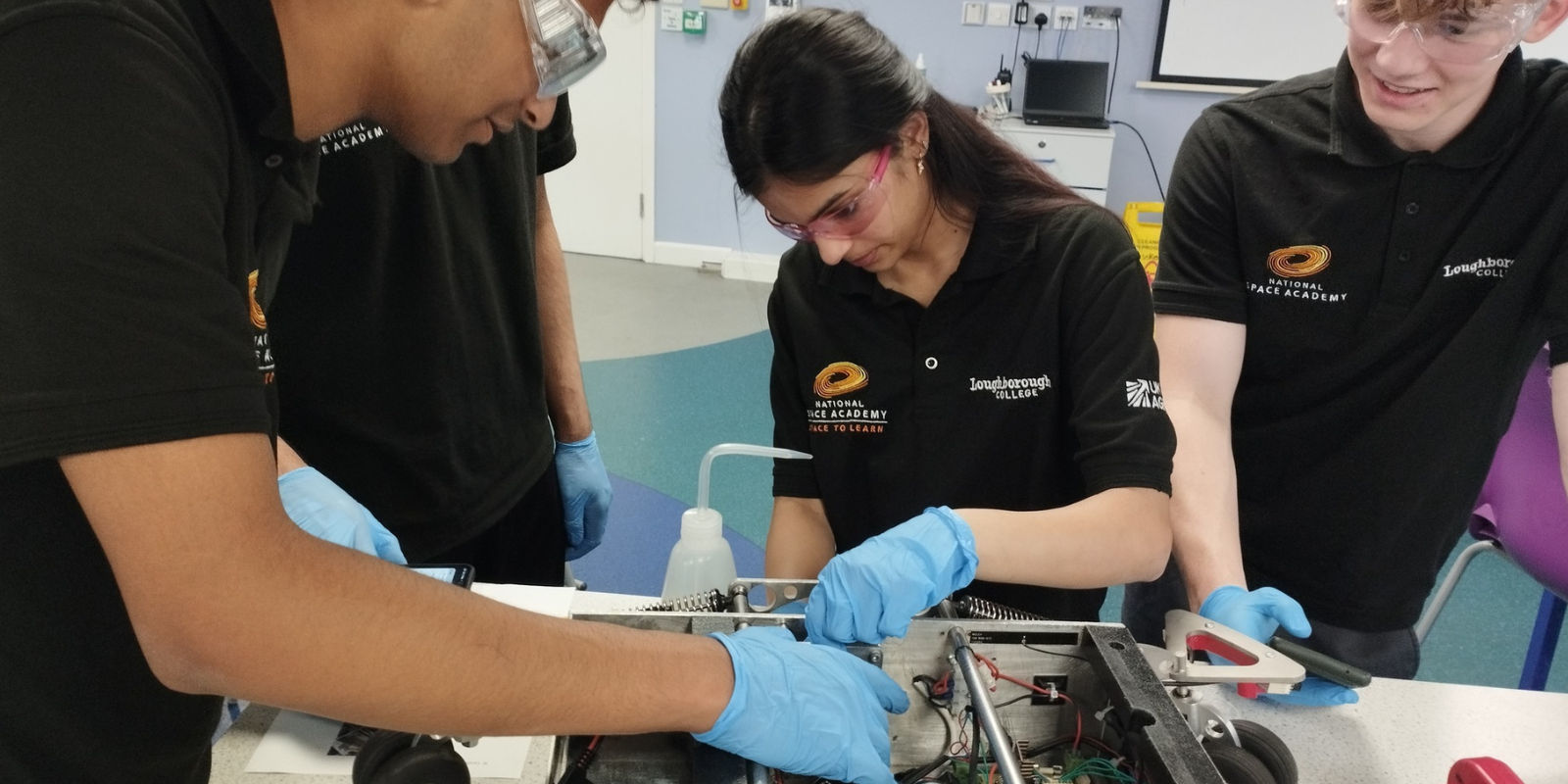
Loughborough College
Loughborough College has been inspiring the next generation of UK space engineers since 2012. In 2023 it won a Queen Elizabeth Prize for Education.
An Alumni Story: Jonny Watkin, Principal and Nicola Stevens, Engineering Curriculum Manager
Loughborough College has been inspiring the next generation of UK space engineers since 2012. Its cutting-edge provision, developed in partnership with the National Space Academy, has created an entirely new pathway for 16-19-year-olds to enter the space industry, and in 2023 it won a Queen Elizabeth Prize for Education. Here, Principal Jonny Watkin and Engineering Curriculum Manager Nicola Stevens explain the impact of winning the Prize.
Jonny: We applied for the Prize because we passionately believed that what we’d created with the National Space Academy was something ground-breaking.
At the time, the course had been running for more than a decade, and we were still the only provider in the UK offering a Level 3 course for aspiring engineers, astrophysicists, and astronauts. We’d established a completely new talent pipeline for the space industry, and we felt we had a strong argument to make for how innovative and forward thinking the programme is.
As a college, we were keen to do more to celebrate our successes generally, and in FE that’s not always easy. When we heard about the Prizes, we thought they could be a great way to help put us on the map as a sector leader – and it was a no brainer to focus on space engineering, because of how unique the provision is.


Nicola: Our application was inspired by our young people and the incredible team of expert lecturers that we have here. We wanted to highlight the amazing work of both students and staff and show them off to the world.
Shortly after we submitted our application, I went on maternity leave, so I was at home with my baby when Jonny called with the good news. Being a new parent is wonderful, but it’s also exhausting, and I’d had a lot of sleepless nights, so it was an amazing feeling hearing that we’d won.
I’d been involved in the development of the course and its curriculum since the very early days, and I’d watched it grow and seen our learners progress on to great things. Winning wasn’t just a professional high, it meant a huge amount to me personally.
Jonny: The impact on staff morale across the board was just huge. To see the team be rewarded for all their hard work like that – and the students as well – was phenomenal. We knew we had some of the best educators in the country, so it was a very proud moment to see that recognised at a national level.
It was an emotional time, to be honest. We’d never achieved anything like this at the college before.

Nicola: Since then, the Prize has really helped with student recruitment. When we present to parents and prospective students at open days, it’s on the first slide before I’ve even told them my name! We talk about it everywhere.
We’re seeing more applications, stronger applications, and we’ve seen a rise in young women joining the course, which is brilliant in what can be quite a male-dominated industry.
It’s also helped with recruitment of staff, because it tells them that this is a great place to work, with a great programme and a great team to work alongside.

Jonny: After we won, other FE colleges started to get in touch. They wanted to see what we were doing and get involved in the space industry themselves. We like to think we’re inspiring the next generation of colleges to pick up the baton.
In 2023 we were the only Level 3 provider, but now there are three or four other colleges offering it around the country, so the impact of the Prize hasn’t just been on us. It’s encouraging our peers to help meet a national need – and showing that Britain is the place to go for a world class education.
